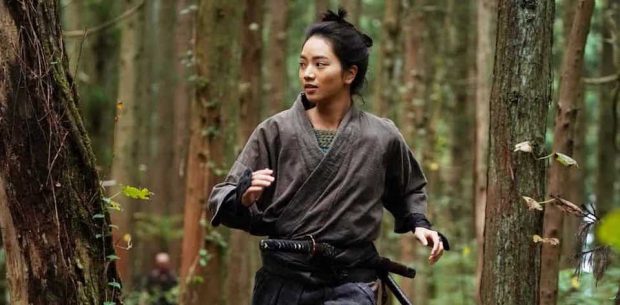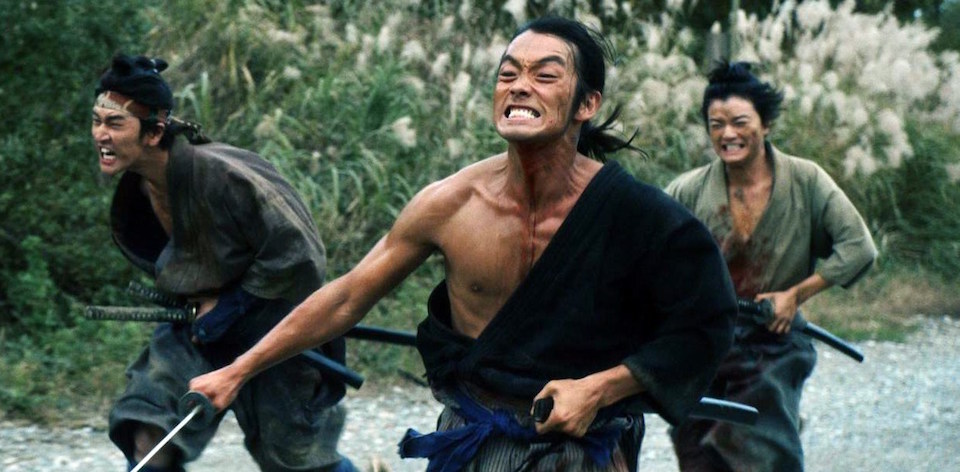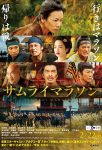“The black ships came, and Japan was changed forever.” While the black ships (or kurofune) refer to a variety of western arrivals between the 16th and 19th centuries, the term has become synonymous for the U.S. Navy steaming four warships into Edo harbour in 1853. It’s the backdrop for SAMURAI MARATHON (サムライマラソン), unironically helmed by British director Bernard Rose (Candyman).
With the arrival of the US ships, a feudal lord holds a marathon to prepare his men for the upheaval, complete with prizes to the winners. However, the Edo capital mistakenly views the marathon as an act of treason, and issues assassins in the director of the lord. Once the government spy Jinnai Karasawa (Takeru Satoh) realises the assassins are on their way, he is in an even more deadly race to put a stop to it.
Crafted in the grand tradition of A and B, SAMURAI MARATHON is unquestionably a beautiful film to behold. Cinematographer Takuro Ishizaka (known for the Rurouni Kenshin films) marks every frame with colourful contrasts. Blue shoji screens frame one moment, while there’s another glorious moment of food porn set against a bright red chamber. Making full use of the widescreen scope, there’s a scene that looks like the castle is floating in the twilight clouds.

The film loses a little of its momentum in the middle, but you can hardly blame it when it has been running with a sword for so long. There’s a few sidebar plots about the Princess Yuki (Nana Komatsu) disguising herself Mulan style to compete, and a set-piece involving a bear. Even though this comes in at less than two hours, it still feels like it could have been a little tighter.
In a coda, the film fades into the modern Tokyo Marathon, drawing a direct line between the two. After all, the film loosely draws inspiration from Samurai Hustle scribe Akihero Dobashi’s book, The Marathon Samurai: Five Tales of Japan’s First Marathon. So, while there’s been quite a few films about the coming of outsiders to Japan – including Shôhei Imamura’s Why Not? (1981), Tsugunobu Kotani’s The Bushido Blade (1981), and Martin Scorsese’s Silence (2016) – Rose’s contribution is mostly an aesthetic one.
2019 | Japan | DIR: Bernard Rose | WRITER: Hiroshi Saito, Bernard Rose| CAST: Sometani Shota, Moriyama Mirai, Satoh Takeru, Komatsu Nana | DISTRIBUTOR: Gaga Corporation (JPN), New York Asian Film Festival (US) | RUNNING TIME: 104 minutes | RELEASE DATE: 28 June 2019 (NYAFF)






